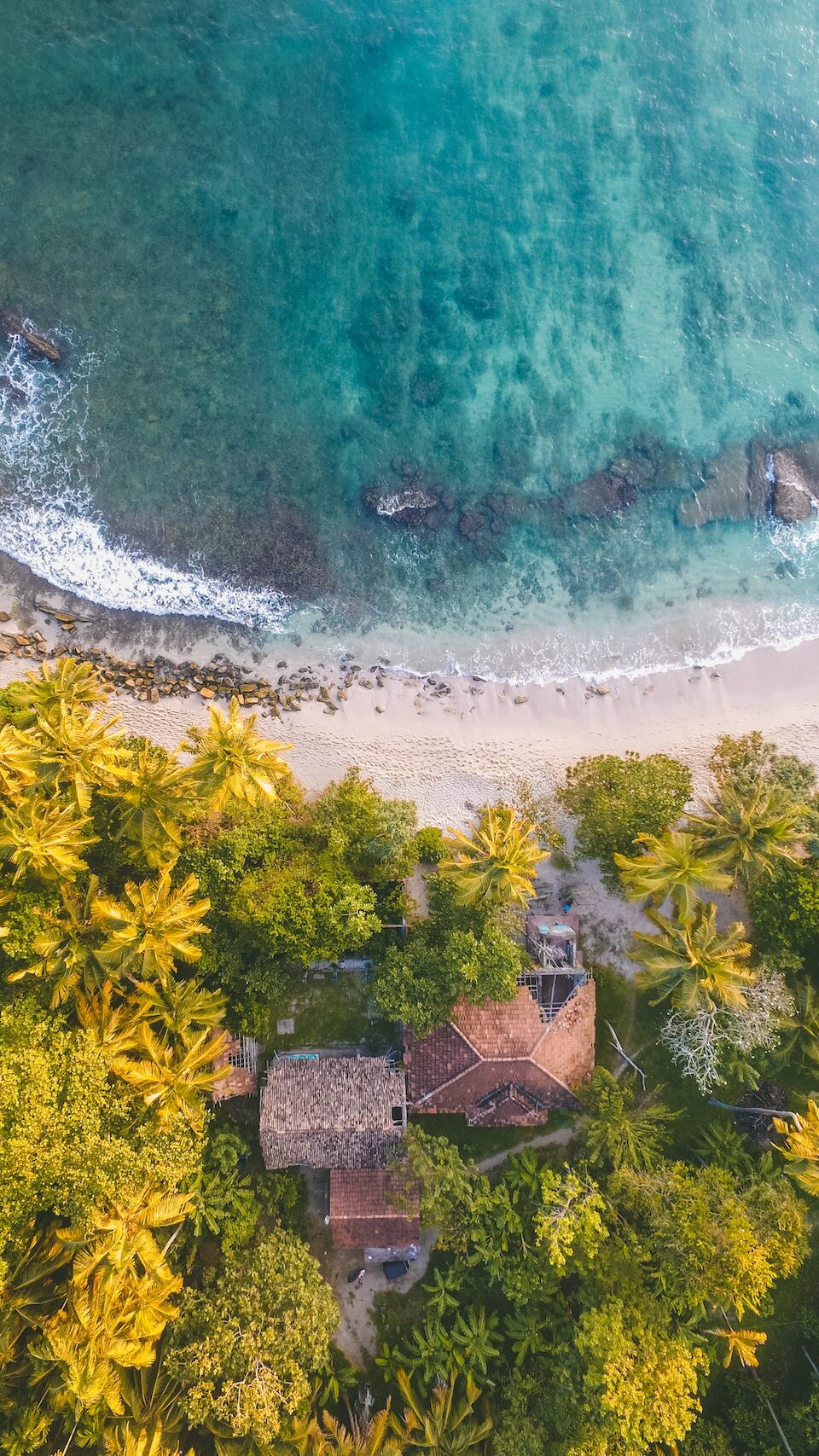Ablison ~ Learn About Energy, Sustainable Living, Weather, and Much More About the Planet We Share.
Renewable energy sources like solar, wind, geothermal, and others have been present in nature for millennia, providing power and sustenance for life on Earth. As humans, we have learned to harness these sources of energy and apply our knowledge and technology to create innovative solutions for the modern world.
Solar energy, for example, has been used by plants for photosynthesis and by animals to regulate body temperature. Humans have developed solar panels to convert sunlight into electricity, allowing us to power our homes and businesses with clean, renewable energy.
Wind energy has been used for centuries by sailors and farmers to power their ships and mills. Today, we use wind turbines to generate electricity, providing clean energy to communities around the world.
Geothermal energy, which harnesses the heat from the Earth’s core, has been used by ancient civilizations for heating and cooking. Today, we use geothermal power plants to generate electricity, reducing our reliance on fossil fuels and decreasing our carbon footprint.
These renewable energy sources are just a few examples of how we can work with nature to create sustainable solutions for our energy needs. By tapping into the power of the natural world, we can reduce our impact on the environment and ensure a brighter future for generations to come.




Living a green and sustainable lifestyle involves making conscious choices to reduce our impact on the environment. It means considering the long-term effects of our actions on the planet, and striving to live in harmony with nature. This requires a shift in mindset, from one focused on consumption and convenience, to one focused on sustainability and stewardship.
Just as nature exists unchanged by man, there are certain aspects of our lives that can be lived in a way that is harmonious with the natural world. For example, using natural materials like wood, stone, and clay in the construction of our homes can help to create a more natural and sustainable living environment. Incorporating renewable energy sources like solar, wind, and hydro power can also help to reduce our reliance on fossil fuels and decrease our carbon footprint.
Sustainable living also means being mindful of our consumption patterns. This includes reducing our use of single-use plastics, choosing products that are made from sustainable materials, and opting for locally-sourced foods to reduce the environmental impact of transportation. We can also reduce waste by composting food scraps and recycling materials like paper, glass, and metal.
In many ways, living sustainably is like creating a work of art. We are taking the raw materials of our lives and shaping them into something that is beautiful, functional, and harmonious with nature. Just as an artist might use different techniques to create a painting or sculpture, we can use different strategies to create a sustainable lifestyle. By making conscious choices and taking small steps each day, we can create a work of art that is not only beautiful, but also sustainable and respectful of the natural world.

Weather
The weather is one of the most unpredictable and awe-inspiring aspects of nature. It can be terrifyingly destructive, yet breathtakingly beautiful all at the same time. From thunderstorms and tornadoes to rainbows and sunsets, the weather is a constant reminder of the power and majesty of our planet.
One of the most striking things about the weather is how quickly it can change. One moment the sky can be clear and blue, and the next it can be dark and ominous, with thunder rumbling in the distance. This unpredictability is both exciting and scary, as we never quite know what to expect.
But despite its unpredictability, the weather is undeniably beautiful. The way the sunlight filters through the clouds, casting a warm glow over the landscape, or the sight of a lightning storm lighting up the night sky are truly awe-inspiring. And who can deny the joy of playing in the snow, or the feeling of warmth and contentment on a sunny day at the beach?
Of course, there are times when the weather can be terrifying. Hurricanes, tornadoes, and other natural disasters can wreak havoc on our lives, causing damage and destruction on a massive scale. But even in the face of such devastation, we are reminded of the resilience and strength of nature, as it rebuilds and regenerates itself over time.
In the end, the weather is a reminder of our place in the world. We are just one small part of a much larger, more powerful system, and it is up to us to respect and protect it. So the next time you see a thunderstorm rolling in, or a rainbow stretching across the sky, take a moment to appreciate the beauty and power of nature, and remember that we are all a part of it.

Learn Finance to Help Yourself – No Gatekeeping
Note, many of our personal finance, self help and work related articles are being moved to our new website Luxwisp and will be found there going forward.
Energy
Learn about what powers our communities
Green Knowledge
Organics, Biodegradables, Recycling and more
Misc.
Pros and Cons of Many hot topics and debates
Trending:
- Pros and Cons of Technology Luxwisp
- Pros and Cons of Free Education Luxwisp
- Pros and Cons of Urbanization Luxwisp
- Pros and Cons of Being a Teacher Luxwisp
- Pros and Cons of Hotworx Luxwisp
- Pros and Cons of Being a Police Officer Luxwisp
- Pros and Cons of Agriculture Luxwisp
- Pros and Cons of AMAC Luxwisp
- Pros and Cons of Being a Flight Attendant Luxwisp
- Pros and Cons of Verizon Number Lock Luxwisp
Latest Posts:
- 20 Pros and Cons of Latitude Margaritaville Daytona BeachLatitude Margaritaville Daytona Beach is a popular retirement community located in Florida. It was developed by Minto Communities USA and… Read more: 20 Pros and Cons of Latitude Margaritaville Daytona Beach
- Pros and Cons of 3.0 Duramax DieselThe Duramax Diesel engine has been a popular choice for truck enthusiasts for years, and with good reason. Known for… Read more: Pros and Cons of 3.0 Duramax Diesel
- 10 Pros and Cons of Cardio MiracleCardio Miracle is a supplement that claims to enhance cardiovascular health and promote overall well-being. It has gained popularity in… Read more: 10 Pros and Cons of Cardio Miracle
- Pros and Cons of Consumer CellularKeen to uncover the secrets of Consumer Cellular? Discover the ups and downs of this provider's offerings to make an informed decision.
- Pros and Cons of NacaWondering about the impact of the National Advisory Council for Aeronautics (NACA)? Explore the pros and cons to unveil its full significance.
- 32 Important Pros and Cons of Magnet SchoolsMagnet schools have specific curriculum focuses such as STEM (Science, Technology, Engineering, and Math), the arts, and professional or career… Read more: 32 Important Pros and Cons of Magnet Schools
- 20 Pros And Cons Of Living In Ave Maria FloridaAve Maria, Florida: A Faith-Based Community with a High Quality of Life Nestled in the heart of Collier County, Florida,… Read more: 20 Pros And Cons Of Living In Ave Maria Florida
- 10 Pros and Cons of ChampVAPros And Cons Of Champva ChampVA is a health insurance program that provides coverage for eligible veterans and their families.… Read more: 10 Pros and Cons of ChampVA
- 20 Pros and Cons of the Yuka AppIn a world where health-conscious consumers are seeking reliable information about the products they consume, the Yuka app emerges as… Read more: 20 Pros and Cons of the Yuka App
- 20 Pros and Cons of KiaPros And Cons Of Kia Are you looking for a car that’s both affordable and advanced in technology? Look no… Read more: 20 Pros and Cons of Kia
- 20 Pros and Cons of Aarp MembershipPros And Cons Of Aarp Membership AARP, formerly known as the American Association of Retired Persons, is a nonprofit organization… Read more: 20 Pros and Cons of Aarp Membership
- 20 Pros and Cons of AMAC (Association of Mature American Citizens)Pros And Cons Of Amac (Association Of Mature American Citizens) Are you looking for an alternative to AARP? The Association… Read more: 20 Pros and Cons of AMAC (Association of Mature American Citizens)
- 50 Intense Pros and Cons of TechnologyThis article discusses the many pros and cons of technology and technological advancement. As technology continues to advance at a… Read more: 50 Intense Pros and Cons of Technology
- 20 Pros and Cons of Claiming Parents as DependentsPros And Cons Of Claiming Parents As Dependents Many people struggle with the decision of whether or not to claim… Read more: 20 Pros and Cons of Claiming Parents as Dependents
- 20 Important Pros and Cons of Del Webb CommunitiesWhat is a Del Webb Community? Del Webb Communities, developed by Pulte Group and tailored towards the 55+ demographic, provide… Read more: 20 Important Pros and Cons of Del Webb Communities
- 20 Pros and Cons of HotworxPros of HOTWORX Cons of HOTWORX Related posts: Pros and Cons of Jazzercise 20 Pros and Cons of Being an… Read more: 20 Pros and Cons of Hotworx
- Pros and Cons of Being a Home InspectorImagine stepping into a world where every house becomes your domain. You have the power to uncover hidden secrets and… Read more: Pros and Cons of Being a Home Inspector
- Will Insurance Cover Two Therapists?Will Insurance Cover Two Therapists Are you considering seeing two therapists, but worried about whether your insurance will cover it?… Read more: Will Insurance Cover Two Therapists?
- Pros and Cons of Hydrogen Peroxide Water TreatmentJourney into the world of hydrogen peroxide water treatment, where the promise of clean water comes with potential risks and rewards waiting to be uncovered.
- Pros and Cons of Intelligence Led PolicingUncover the benefits and drawbacks of Intelligence Led Policing, revealing its potential impact on crime rates and ethical concerns.
- How to Cancel Tesla InsuranceHow To Cancel Tesla Insurance Are you a Tesla owner who’s currently subscribed to their insurance program and looking for… Read more: How to Cancel Tesla Insurance
- Pros and Cons of Campaign Finance ReformUnveil the conflicting perspectives on campaign finance reform, stirring curiosity about the intricate balance between benefits and drawbacks.
- How to Get Ensure Covered by InsuranceStart the journey to getting Ensure covered by insurance with essential strategies for navigating complex policies and maximizing benefits.
- Pros and Cons of Schluter Shower SystemInnovative yet divisive, the Schluter Shower System offers unique advantages and challenges in modern bathroom renovations – discover why opinions vary.
- Key Pros and Cons of Congressional Term LimitsOpen a window into the complex debate over congressional term limits, exploring the advantages and disadvantages that shape this critical issue.
- Nuclear Energy Pros and ConsBridging the gap between nuclear energy's benefits and drawbacks, this discussion will challenge your perceptions and shed light on its complexities.
- How to Read an Aetna Insurance CardNavigate the complexities of your Aetna insurance card to uncover hidden benefits and optimize your healthcare coverage.
- Pros and Cons of Living in Arlington VaNestled in the heart of the nation's capital, Arlington, VA beckons dreamers, achievers, and those seeking an enviable quality of… Read more: Pros and Cons of Living in Arlington Va
- Pros and Cons of EmtalaLeverage the insights on the pros and cons of EMTALA to unravel the complexities of emergency medical care access.
- Pros and Cons of Computer Assisted CodingUncover the hidden advantages and pitfalls of Computer Assisted Coding in the healthcare industry, shaping coding practices in unexpected ways.
- 50 Pros and Cons of Being a Guardian Dog OwnerWhat is a Guardian Family? Becoming a Guardian Family for a breeder’s pup offers multiple potential benefits and drawbacks. This… Read more: 50 Pros and Cons of Being a Guardian Dog Owner
- 30 Pros and Cons of Being an ArchitectPros and Cons of Being an Architect You might be thinking, ‘Becoming an architect seems like a challenging career choice,… Read more: 30 Pros and Cons of Being an Architect
- 20 Pros and Cons of Eating Peanut ShellsDiscover the pros and cons of eating peanut shells, exploring the nutritional benefits as well as potential health risks. Delve… Read more: 20 Pros and Cons of Eating Peanut Shells
- Pros and Cons of Retesting Elderly DriversBalancing road safety and seniors' independence, the debate on retesting elderly drivers presents complex considerations that demand closer examination.
- Pros and Cons of Stack and Tilt Golf SwingDiscover the polarizing opinions surrounding the Stack and Tilt golf swing method, providing insights for golfers to weigh its benefits and drawbacks.
- Pros and Cons of Elysium RingsA deep dive into the pros and cons of Elysium rings reveals intriguing qualities that may surprise you.
- 50 Pros and Cons of Dropping the Atomic Bomb 2024The debate over the pros and cons of dropping the atomic bomb during World War II remains contentious. Some argue… Read more: 50 Pros and Cons of Dropping the Atomic Bomb 2024
- Pros and Cons of Living in Cranbrook BcNestled amidst the Rockies, Cranbrook, BC offers a unique mix of urban culture and outdoor allure – but what challenges lie beneath the surface?
- Do Solar Panels Increase Home ValueDive into the debate on whether solar panels increase home value, unraveling the intriguing factors that shape this complex relationship.
- Pros and Cons of Being a LawyerAre you ready to take the stand and weigh the scales of justice? Being a lawyer is like stepping into… Read more: Pros and Cons of Being a Lawyer
- 20 Pros and Cons of Being a Police OfficerPros And Cons Of Being A Police Officer Are you considering a career in law enforcement as a police officer?… Read more: 20 Pros and Cons of Being a Police Officer
- 20 Pros and Cons of Excepted ServicePros And Cons Of Excepted Service Have you ever heard of the term ‘excepted service’? It refers to a category… Read more: 20 Pros and Cons of Excepted Service
- Pros and Cons of Steam EngineBrimming with innovation, the steam engine's benefits and drawbacks will make you ponder its profound impact.
- Pros and Cons of Msc CruisesIntrigued about MSC Cruises? Delve into the pros and cons to uncover whether this cruise line is the perfect fit for your next adventure.
- 20 Pros and Cons of Magnolia TreesMagnolia trees are a popular ornamental tree known for their beautiful, fragrant flowers and glossy green leaves. These trees can… Read more: 20 Pros and Cons of Magnolia Trees
- 20 Pros and Cons of Owning an Event SpacePros And Cons Of Owning An Event Space So you’re thinking about owning an event space? Congratulations! Owning a venue… Read more: 20 Pros and Cons of Owning an Event Space
- 15 Pros and Cons of Nido MilkPros And Cons Of Nido Milk Nido milk has been a popular choice for parents looking to provide their children… Read more: 15 Pros and Cons of Nido Milk
- Pros and Cons of Amazon Business AccountUncover the intriguing advantages and potential drawbacks of Amazon Business Accounts in this insightful exploration – the key to making informed decisions.
- Pros and Cons of SheinHovering between excitement and uncertainty, discover the highs and lows of shopping at Shein, the fast-fashion giant, in this insightful exploration.
- 10 Pros and Cons of Crepe ErasePros And Cons Of Crepe Erase Are you tired of seeing wrinkles and fine lines on your face? Do you… Read more: 10 Pros and Cons of Crepe Erase
- Pros and Cons of Digital TechnologyDoes digital technology make our lives better or worse? In a world where digital devices and platforms reign supreme, it's… Read more: Pros and Cons of Digital Technology
- Pros and Cons of Being a VetSo you think you want to be a vet? Well, get ready for a rollercoaster ride of emotions and experiences.… Read more: Pros and Cons of Being a Vet
- Pros and Cons of Head Start ProgramStep into the world of early childhood education with a look at the surprising benefits and drawbacks of the Head Start program.
- Pros and Cons of Being a LandlordImagine if you could be the captain of your own ship, sailing through the sea of real estate. Being a… Read more: Pros and Cons of Being a Landlord
- Pros and Cons of MyplateHungry for insight on the MyPlate initiative? Explore the nuanced perspectives on its pros and cons to make informed decisions about your diet.
- 20 Pros and Cons of Being a BookkeeperPros And Cons Of Being A Bookkeeper Are you considering a career as a bookkeeper? Before making a decision, it’s… Read more: 20 Pros and Cons of Being a Bookkeeper
- Pros and Cons of Owning a Dry Cleaning BusinessYearning for insights into the dynamics of owning a dry cleaning business? Uncover the unique blend of advantages and challenges that await you.
- Pros and Cons of Ebay StoreYearning to discover the untold advantages and pitfalls of running an eBay store?
- 30 Pros and Cons of Living in a Commonwealth State: Comprehensive LookAre you thinking about relocating to one of the four “commonwealth” states in the United States? Let’s break it down… Read more: 30 Pros and Cons of Living in a Commonwealth State: Comprehensive Look
- Pros and Cons of Hostile ArchitectureLeaning on the debate of hostile architecture reveals a complex interplay between security and inclusivity that challenges conventional urban planning norms.
- 35 Pros and Cons of No See Um ScreenWhen it comes to screening your home, there are many factors to consider. Insects, allergens, solar protection, and privacy are… Read more: 35 Pros and Cons of No See Um Screen
- What Is Progressive Insurance 3-Digit CodeProgressive Insurance’s 3-digit code is 24260. This code is also known as the company’s NAIC code, which stands for National Association… Read more: What Is Progressive Insurance 3-Digit Code
- Pros and Cons of Pretrial ReleaseContemplating the pros and cons of pretrial release reveals a delicate balance between individual rights and public safety, shaping the course of justice.
- Pros and Cons of Flip PhonesLose yourself in the timeless allure of flip phones as we unravel the intriguing advantages and drawbacks of these retro devices.
- What Is a Descriptive DepositNurture your understanding of financial intricacies with a dive into the world of descriptive deposits—unlocking secrets vital to your financial decisions.

















































